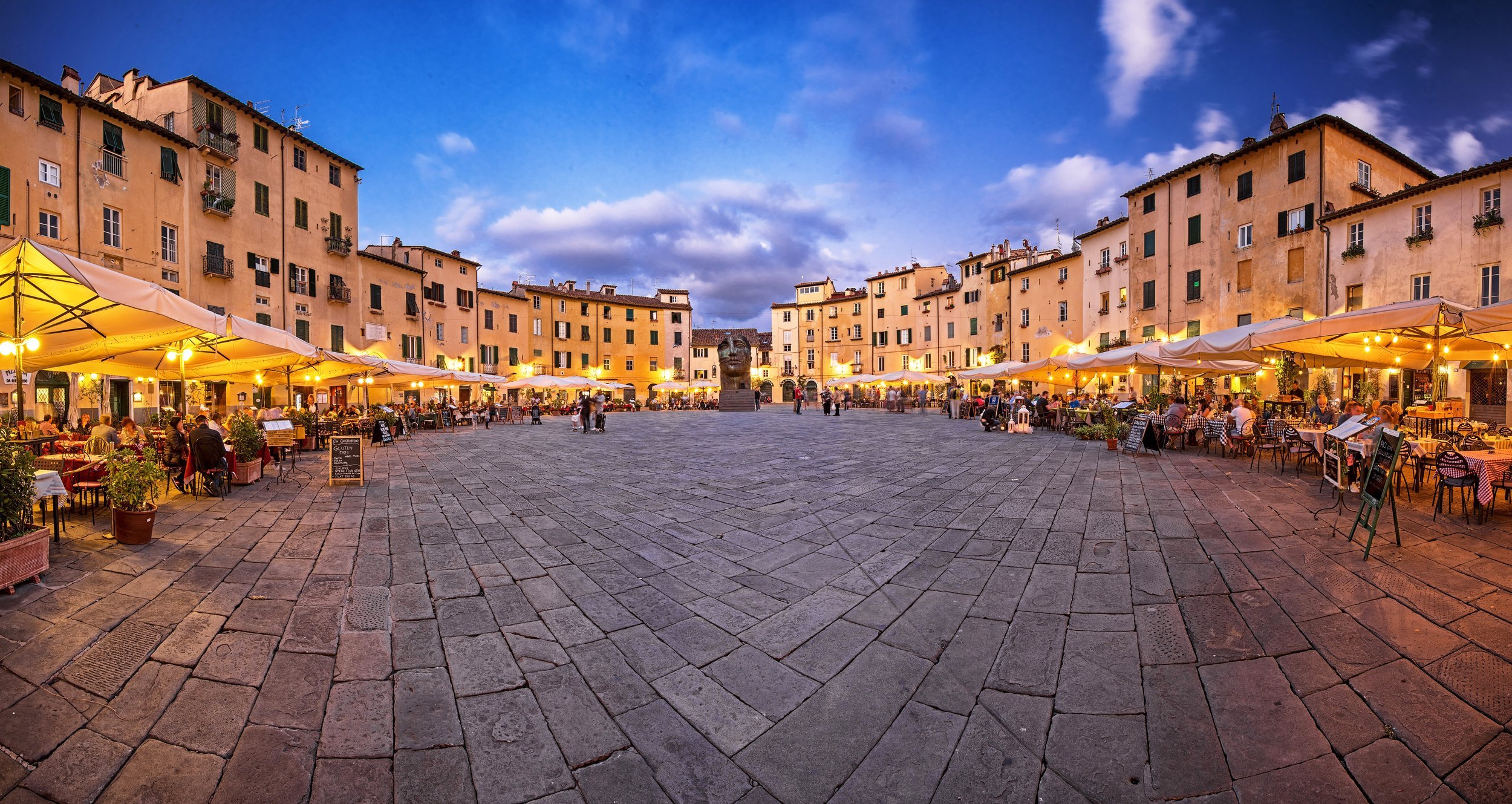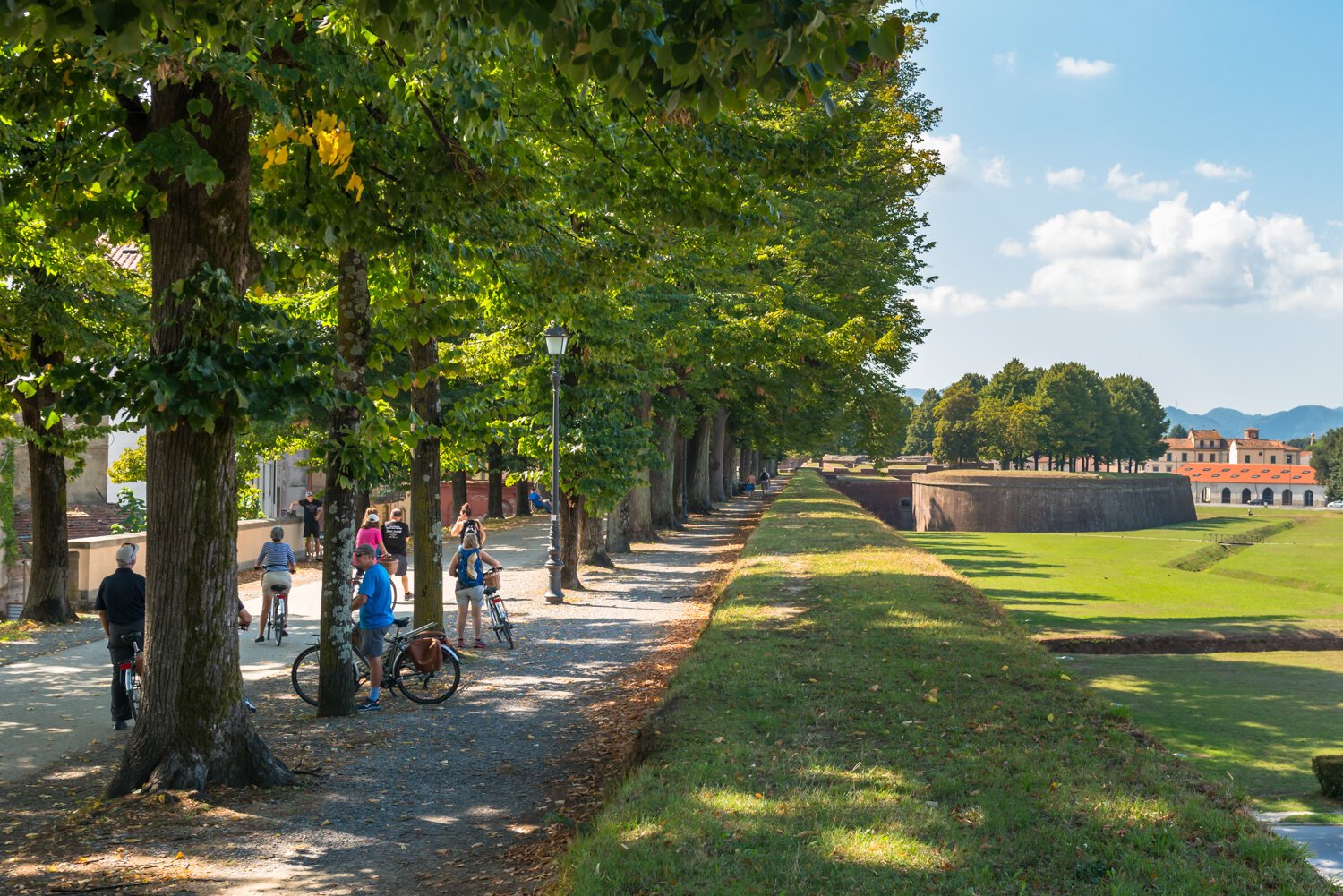
About Lucca
History of Nearby Lucca
Lucca lies in the valley of the Serchio River and is almost surrounded by hills, with the Apuan Alps to the north and west. The city’s 16th and 17th century walls are among the best preserved in Europe and will find Luccans and tourists alike ambling and biking its 4 km circumference all day and night. Lucca is also known as “The City of 99 Churches,” and was a every early convert to Christianity.
Lucca was a Ligurian and later an Etruscan town, and the Romans probably established a colony there in 180 BC (mentioned by the Roman historian Livy). The rectangular Roman plan is preserved in Lucca’s central streets, and remains of the walls, forum, and amphitheatre have been found.
Lying at the junction of roads to Parma, Florence, Rome, Pisa, and Luni, the town was apparently fairly prosperous and was an early episcopal see. After AD 476 it was ruled successively by the Goths, the Byzantines, and the Lombards, becoming the residence of one of the three Lombard dukes in Tuscany.
Lucca was the principal city in Tuscany in the 9th and 10th centuries, and it commanded one of the principal roads between Lombardy and Rome, the Via Francigena. The city began to lose importance in the late 10th century to Florence, which replaced Lucca as the Tuscan capital. Despite numerous conflicts with its powerful neighbours and ambitious noble houses, Lucca largely maintained its independence until it fell to the French in 1799. From 1805 until 1814, Lucca was ruled as a principality by Élisa Baciocchi, a sister of Napoleon. It was united to the kingdom of Italy in 1860 (from Britannica).
Lucca, long an important musical centre, was the home of the composer Giacomo Puccini (1858–1924); he is celebrated during the summer Opera Theater and Music Festival of Lucca. A road and rail centre, today the city is the market town of a rich agricultural region that exports high-quality olive oil. Silk has been manufactured since about the end of the 11th century. The Serchio is used for waterpower, and an aqueduct (1823–32) carries the water supply from the Pisan mountains.
Situated between Pisa and Florence, Lucca is also only 30 km from the beach.


